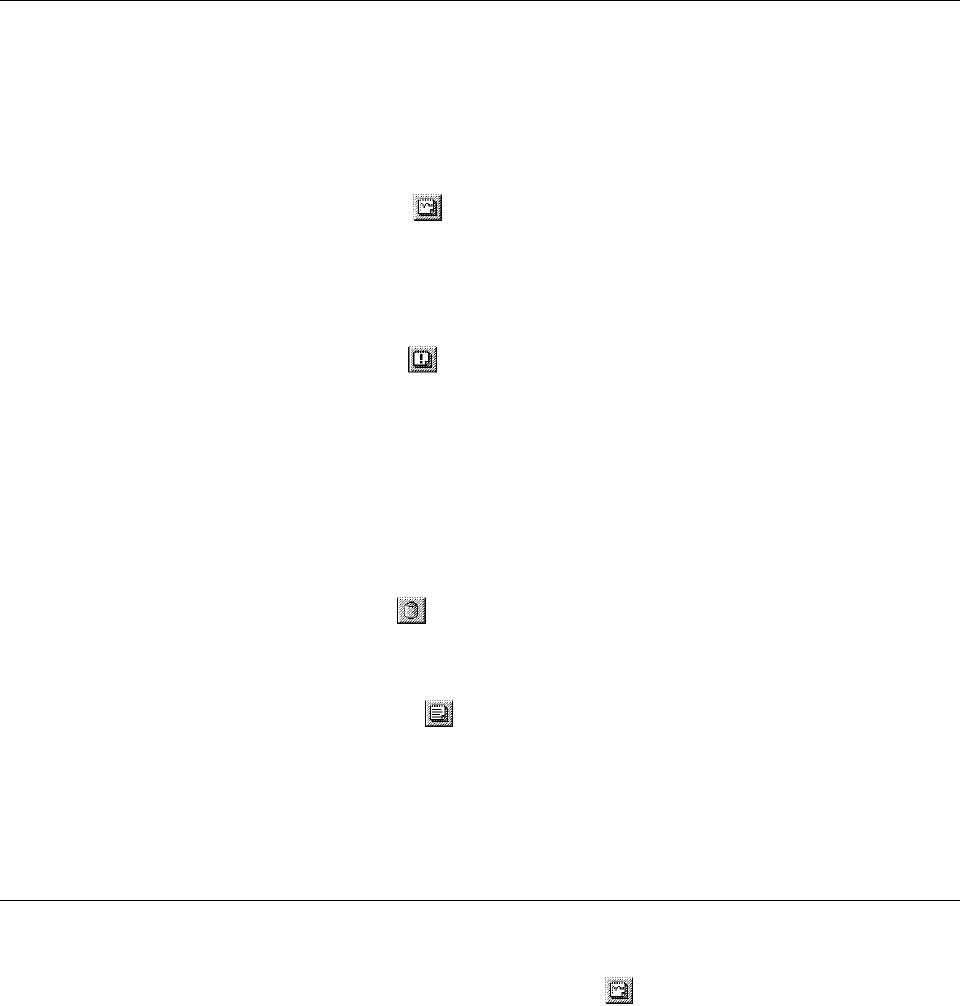
This soft copy for use by IBM employees only.
7.2 Collecting Data with Performance Monitor
To collect and display Performance Monitor data, you can either choose from the
View pull-down menu one of the following options, or you can click on one of the
smart icons located at the top of the Performance Monitor main panel.
The options are:
1. Chart (smart icon )
It graphically displays (in real-time) how the values of counters change in
response to changes in system load conditions. Two display modes are
available: line graph or histogram. Refer to 7.3, “Chart View” for more
details.
2. Alert (smart icon )
This view, discussed in 7.4, “Alert View” on page 124, is particularly useful
for monitoring servers in a distributed environment where centralized
administration and alerts are tracked by the logging mechanism. For each
alert that you are monitoring, you have to supply a threshold value. When
the specified alert threshold value is reached, the alert is written to the
application log. You also have the option to start a corrective procedure to
perform tasks that are aimed at containing the problem that triggered the
alert.
3. Log (smart icon )
In order to perform time-lapse analysis, real-time data is stored to disks for
retrieval later. This view is described in 7.5, “Log View” on page 126.
4. Report (smart icon )
This is useful for observing numeric values of multiple counters
simultaneously and helps in deciding which counters to place in a chart.
This view, detailed in 7.6, “Report View” on page 129, is also useful for the
exportation of specific sets of numeric data from Performance Monitor to
applications such as Excel or Lotus 1-2-3.
7.3 Chart View
The chart view can be displayed by selecting Chart View from the View
pull-down menu, or clicking on smart icon .
When a system object is selected for display, the values of the specified counter
is charted in a graphical format as shown in Figure 93 on page 121. This graph
is displayed in real-time and reflects any changes in system load. The example
in Figure 93 on page 121 shows only one object being measured, but multiple
objects can be selected for simultaneous charting.
120 PC Server and Windows NT Integration Guide
